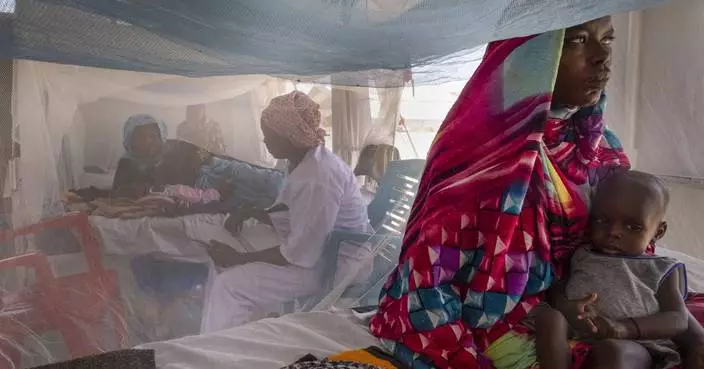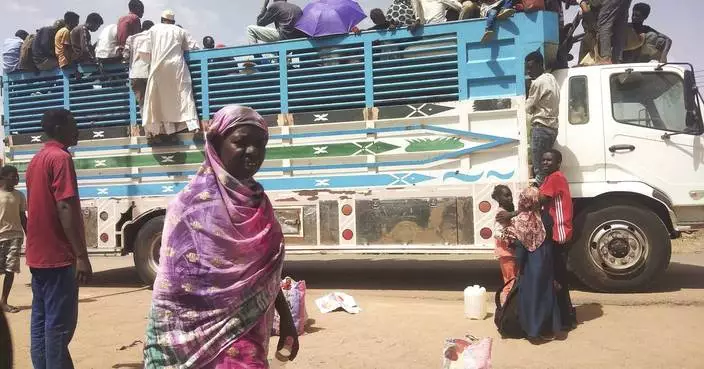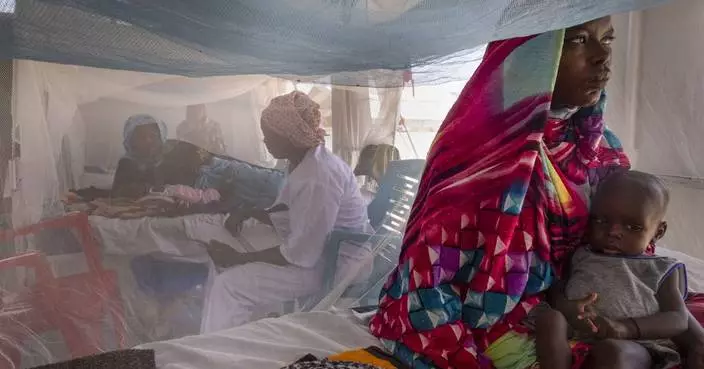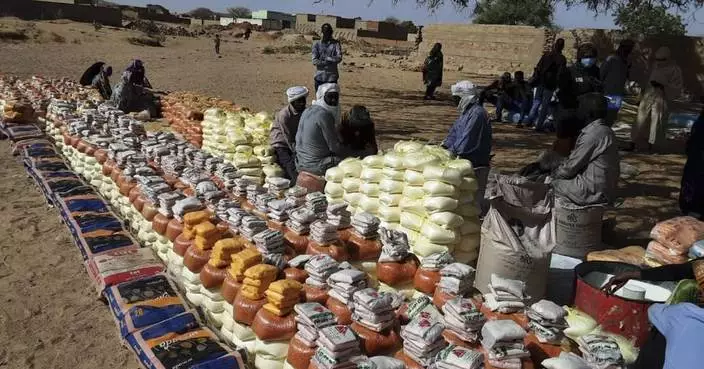Sudan's transitional government said Thursday it has reached a settlement with families of the victims of the 2000 attack on USS Cole in Yemen, in a bid to have the African country taken off the U.S. terrorism list and improve relations with the West.
At the time of the Oct. 12, 2000 attack in the Yemeni port of Aden that killed 17 sailors and wounded more than three dozen others, Sudan was accused of providing support to al-Qaida, which claimed responsibility for the attack.
Today, Sudan's interim authorities are desperate to have sanctions, linked to its listing by the U.S. as a state sponsor of terror, lifted. Sudan's justice ministry said the settlement was signed with the victims' families last Friday but its statement gave no details of the settlement.
There was no immediate comment from Washington.
Sudan's information minister and interim government spokesman, Faisal Saleh, told The Associated Press that Justice Minister Nasr-Eddin Abdul-Bari had traveled last week to Washington to sign the deal that included compensations for both the wounded and the killed.
He said the figures could not be disclosed because the government is still in the middle of negotiations to reach a similar settlement with families of victims of the 1998 bombings of U.S. embassies in Kenya and Tanzania.
UNITED NATIONS (AP) — Nearly 282 million people in 59 countries suffered from acute hunger in 2023, with war-torn Gaza as the territory with the largest number of people facing famine, according to the Global Report on Food Crises released Wednesday.
The U.N. report said 24 million more people faced an acute lack of food than in 2022, due to the sharp deterioration in food security, especially in the Gaza Strip and Sudan. The number of nations with food crises that are monitored has also been expanded.
Máximo Torero, chief economist for the U.N.'s Food and Agriculture Organization, said 705,000 people in five countries are at Phase 5, the highest level, on a scale of hunger determined by international experts — the highest number since the global report began in 2016 and quadruple the number that year.
Over 80% of those facing imminent famine — 577,000 people — were in Gaza, he said. South Sudan, Burkina Faso, Somalia and Mali each host many thousands also facing catastrophic hunger.
According to the report’s future outlook, around 1.1 million people in Gaza, where the Israel-Hamas war is now in its seventh month, and 79,000 in South Sudan are projected to be in Phase 5 and facing famine by July.
It said conflict will also continue to drive food insecurity in Haiti, where gangs control large portions of the capital.
Additionally, while the El Nino phenomenon peaked in early 2024, “its full impact on food security – including flooding and poor rain in parts of east Africa and drought in southern Africa, especially Malawi, Zambia and Zimbabwe – are like to manifest throughout the year.”
U.N. Secretary-General Antonio Guterres called the report “a roll call of human failings,” and that “in a world of plenty, children are starving to death.”
“The conflicts erupting over the past 12 months compound a dire global situation,” he wrote in the report's foreword.
Guterres highlighted the conflict in the Gaza Strip, as the enclave holds the highest number of people facing catastrophic hunger. There is also the year-old conflict in Sudan, which has created the world's largest internal displacement crisis “with atrocious impacts on hunger and nutrition,” he added.
According to the report, over 36 million people in 39 countries and territories are facing an acute hunger emergency, a step below the famine level in Phase 4, with more than a third in Sudan and Afghanistan. It's an increase of a million people from 2022, the report said.
Arif Husain, the U.N. World Food Program’s chief economist, said every year since 2016 the numbers of people acutely food insecure have gone up, and they are now more than double the numbers before the COVID-19 pandemic.
While the report looks at 59 countries, he said the target is to get data from 73 countries where there are people who are acutely food insecure.
Secretary-General Guterres called for an urgent response to the report’s findings that addresses the underlying causes of acute hunger and malnutrition while transforming the systems that supply food. Funding is also not keeping pace with the needs, he stressed.
“We must have the funding, and we also must have the access,” WFP’s Husain said, stressing that both “go hand-in-hand” and are essential to tackle acute food insecurity.
The report is the flagship publication of the Food Security Information Network and is based on a collaboration of 16 partners including U.N. agencies, regional and multinational bodies, the European Union, the U.S. Agency for International Development, technical organizations and others.

FILE - Palestinians line up for a meal in Rafah, Gaza Strip, Friday, Feb. 16, 2024. According to the Global Report on Food Crises released Wednesday, April 24, nearly 282 million people in 59 countries suffered from acute hunger in 2023, with war-torn Gaza the territory with the largest number of people facing famine. (AP Photo/Fatima Shbair, File)









